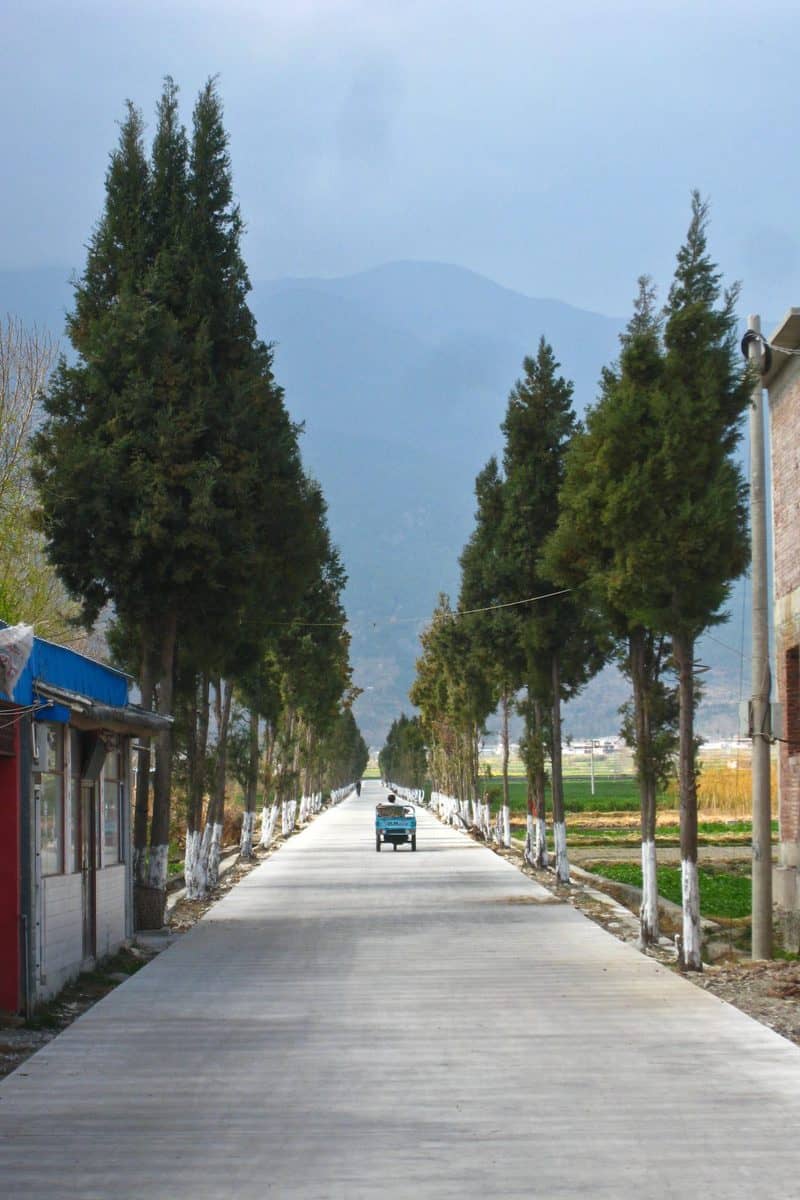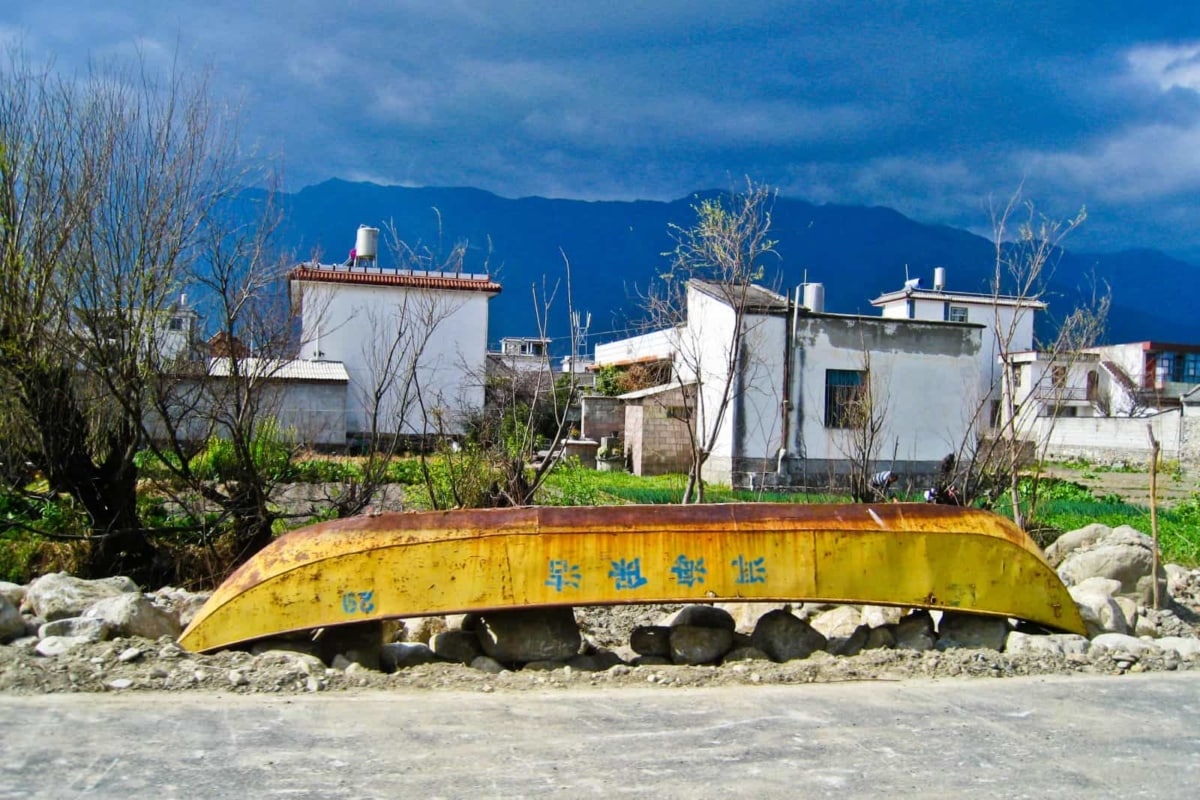My 40 liter rucksack was packed and I was setting out to explore the southwestern Chinese province of Yunnan for ten days. I was an English speaking white boy in rural China, with an extremely limited understanding of Chinese. I couldn’t even almost, barely, sometimes have a small conversation with a native speaker. I was limited to pointing, grunting and making incredibly awkward hand gestures.
Growing up in America, I went through the grueling school-time regimen of learning languages that I never, ever wanted to. During my formative years I learned French, Spanish and even Hebrew; to this day, Spanish is the only one that ever stuck. Chinese was never forced down my throat, and thus I took off into the unknown lands of China with a very limited ability to communicate.
If you’ve never traveled to a non-English speaking country before, imagine for a moment not being able to count to ten, ask how much something costs, or even pronounce street names. Storefronts look the same because the sign out front, scrawled with apparent jibberish, might say “restaurant” or it could very well say “we sell zippers.” Disorientation sets in when you realize that you can’t communicate, understand or even interact with anybody. It’s a frustrating, alienating and totally anomic experience.

Now, enter Peppe. Peppe, short for Giuseppe (I’m going to assume you’ve already figured out he’s Italian), became my friend outside the bus stop in Dali. As I was struggling with the taxi drivers who were trying to overcharge me for a ride down the street, a skinny, bald-headed white boy went storming past. This was a man who needed no assistance. I introduced myself to Peppe and learned that he spoke fluent Mandarin. He became the catalyst for my gaining a deeper understanding of why learning languages is so important.
Peppe grew up near a major shipping port in Italy. Due to the large number of denominations in the area, and through influence of his grandmother, he picked up the art of communication. Peppe speaks four languages fluently and, self-admittedly, speaking languages is the only thing he knows how to do. “I can speak languages,” he laughed, “but I can’t even tie my own shoe!”

As we rode our bikes out of Dali and into the rural villages of the Chinese countryside, we passed by expansive fields, majestically juxtaposed next to traditional Chinese architecture. The people were working the fields in solitude, going about their day, working in the sun. There was peace in the air, and suddenly, there was peace in my mind. Peppe and I peddled together, silently observing and taking in our surroundings. It occurred to me that this land and this lifestyle have persisted for hundreds and thousands of years in China. Years ago, when I was cooped up in a cubicle, it never crossed my mind that on the other side of the world this is what life was like. And that it had been this way for a very, very long time.

Peppe had been my acting translator thus far, which was fitting, considering he previously worked on an oil mine translating between English and Chinese. His method of communication was smooth and nonchalant. Throughout the couple of days we spent together he spoke in Mandarin, English, Italian and Spanish. And he didn’t stammer once.
Learning foreign languages opens new regions of the world to a person—places where one can visit, immerse themselves, and not have to struggle. I, on the other hand, as an expat in China, struggle with communication every minute of every day.
In spending time with Peppe, I felt dwarfed and humbled by my limited ability to do something so inherently basic—communicate.

Peppe was my open door to rural China. My inability to communicate literally meant that our trip to the villages would not have been possible. He could ask for directions, converse with the locals, and get what he wanted. My daily life is more like a clumsy game of charades.
On this trip into the villages, I gained a deeper understanding of Chinese culture. Yes, we know that travel broadens the mind, but rarely does such an overwhelming and significant moment occur. The combination of my surroundings and Peppe’s presence culminated in a powerful moment of understanding in which I gained deeper wisdom of the world, the roles people play on both a micro- and macro-scale, and what my specific role within the world might truly be. I compared the “comfortable” life in my cubicle to the lives of the Chinese who were harvesting in the fields and washing their clothes in the river. Their lives are simple but significant. It caused me to question my very own existence.

In Peppe’s explanation of “ni hao,” which is Mandarin for “hello,” I learned more about China than I had picked up in three months living here. Literally translated, it means “you good.” When an adjective is placed after a pronoun, the meaning implies a comparison between the speaker and the receiver. So, in saying hello to someone, you’re actually telling them “you are better than me.” This simple understanding of the most basic greeting is hugely significant on so many levels, and speaks to the nature of Chinese relationships, the culture, and even their history.
In this sense, learning foreign languages not only opens doors to new regions of the world, but it broadens and creates a global understanding.
With language come culture, history, and understanding. With these come growth, wisdom and discernment. Life is fluid, and knowledge exists around every corner. A foreign language can be the door which opens one’s eyes and mind to the possibilities contained within this often strange world we live in.
READ NEXT: Teaching English in China: The Cutest Little Kids You’ve Ever Seen

Hey Jeremy,
Awesome post! Actually, a really great blog in general. I’m going to be hitting the road again this year to countries that do not have English as their first language. I’ll be completely out of my depth…and I can’t wait!!
Keep it up,
Jonesy
That’s very cool, Jonesy! I love your enthusiasm. You’re going to get flipped upside down entirely, but the experience will be unforgettable. Have a blast!
On the mark about foreign languages.I think it’s impossible to really understand another culture without speaking its language. There are so many meanings and nuances that one will never know.
Spot on. I think my example of what “ni hao” means really speaks to those nuances.
Learning foreign languages has turned in the last century from something unusual to something necessary and in our century to something normal….for all the reasons you have mentioned and more…
It’s so true what you say. It can feel pretty daunting and frustrating when you don’t speak the language and with Mandarin, you’re definitely jumping in at the deep end – Mandarin is damn tricky!
I had a similar epiphany bumping into a a spanish guy who spoke great Mandarin too. It was my personal kick up the butt to spend more time learning.
I couldn’t agree more and have certainly felt challenged while travelling in parts of the works where my language skills were minimal. I don’t always feel that I have the time to learn more than a few basic words, though think that when you do have at least a basic understanding of the language, you will have an entirely different trip!
Language and culture are deeply intertwined and understanding the language is certainly one of the most important steps to understanding the culture. A few words will suffice, but a few more words is even better!
I recently spent 3 weeks in Yunnan, and found it very challenging not knowing Mandarin. I totally agree that language and culture are very much linked. I found this trip very lonely as I wasn’t able to really interact with the Chinese, and met few foreign/English speaking travellers.
I know that feeling, for sure, which is why I endeavored to learn at least a little bit of Mandarin. It can be hard not speaking the local language, but loneliness is part of solo travel, and we become stronger and more independent people because of it!